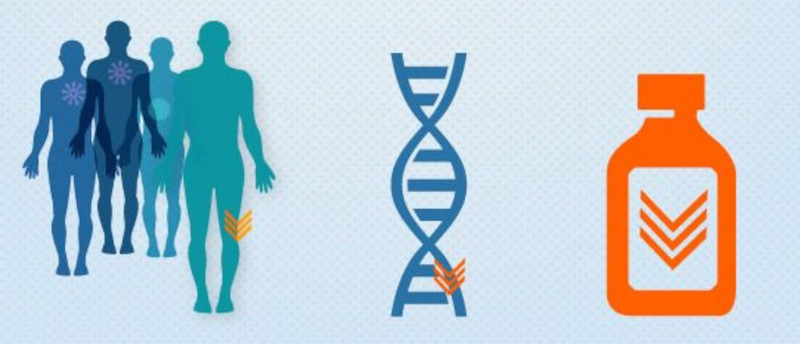Press Release: ECOG-ACRIN opens NCI-MATCH precision medicine cancer trial

The largest, most scientifically rigorous precision medicine trial in cancer to date is now open to cancer centers and community hospitals nationwide
Philadelphia, August 17, 2015 — The National Cancer Institute-Molecular Analysis for Therapy Choice (NCI-MATCH) phase II precision medicine trial, known to doctors as trial EAY131, is open through the ECOG-ACRIN Cancer Research Group.
Precision medicine refers to the tailoring of treatment based on the characteristics of each individual. As the largest precision medicine trial for cancer to date, NCI-MATCH seeks to determine whether matching certain drugs or drug combinations to people whose tumors have specific gene abnormalities will effectively treat their cancer, regardless of their cancer type. Treatment for this trial focuses on molecular abnormalities of patient tumors instead of the organ sites of the cancer.
NCI-MATCH (EAY131) will match patients with one of 22 treatments to test the use of each specific drug or drug combination targeted to a particular gene abnormality. It is open to medical facilities today with ten treatments, and the additional 12 treatments will be added to the trial within the next several months.
Patients can enroll in the trial on a rolling basis as hospitals and cancer centers join and as the additional treatments become available. Contact the NCI Cancer Information Service at 1-800-4-CANCER for trial information.
The trial seeks to enroll for genetic testing about 3,000 adults 18 years of age and older with any type of solid tumor or lymphoma (cancer in the cells of the immune system) that has returned or gotten worse after standard systemic therapy (oral or intravenous). Patients may also be eligible for screening if they have a rare type of cancer for which there is no standard treatment. All patients considering the trial will need to have a new biopsy and their tumor cells will need to undergo genetic testing to see whether they contain one of the gene mutations being studied.
Trial researchers expect that about one-third of the patients screened will have one or more molecular abnormalities that match one of the 22 treatments being studied. If so, they will be further evaluated to determine if they are able to be treated as part of the trial.
There will be 35 patients enrolled for each drug/drug combination being studied.
The trial’s design calls for at least 25 percent of the 1,000-patient enrollment to be people with rare types of cancer. The inclusion of uncommon types of cancer in NCI-MATCH offers patients an unusual opportunity to have their disease assessed to see if it has the same genetic abnormalities found in more common cancer types. It also offers researchers a unique opportunity to study the effectiveness of new treatments on rare diseases.
As leader of the trial, ECOG-ACRIN is coordinating the genetic testing. It also supports all trial sites with training, laboratory services, trial assignments, biostatistical support, data management, auditing, quality control, and public awareness.
The study was co-developed by the ECOG-ACRIN Cancer Research Group and the National Cancer Institute.
ECOG-ACRIN study chair Keith T. Flaherty, MD, a medical oncologist at Massachusetts General Hospital and associate professor, Harvard Medical School, both in Boston, is available for comment.
For more information, visit https://ecog-acrin.org/nci-match-eay131.
NCI-MATCH (EAY131) will match patients with one of 22 treatments to test the use of each specific drug or drug combination targeted to a particular gene abnormality. It is open to medical facilities today with ten treatments, and the additional 12 treatments will be added to the trial within the next several months.
Patients can enroll in the trial on a rolling basis as hospitals and cancer centers join and as the additional treatments become available. Contact the NCI Cancer Information Service at 1-800-4-CANCER for trial information.
The trial seeks to enroll for genetic testing about 3,000 adults 18 years of age and older with any type of solid tumor or lymphoma (cancer in the cells of the immune system) that has returned or gotten worse after standard systemic therapy (oral or intravenous). Patients may also be eligible for screening if they have a rare type of cancer for which there is no standard treatment. All patients considering the trial will need to have a new biopsy and their tumor cells will need to undergo genetic testing to see whether they contain one of the gene mutations being studied.
Trial researchers expect that about one-third of the patients screened will have one or more molecular abnormalities that match one of the 22 treatments being studied. If so, they will be further evaluated to determine if they are able to be treated as part of the trial.
###
